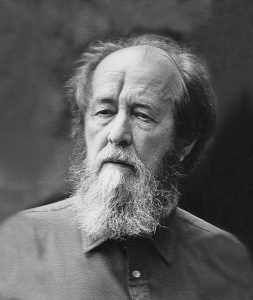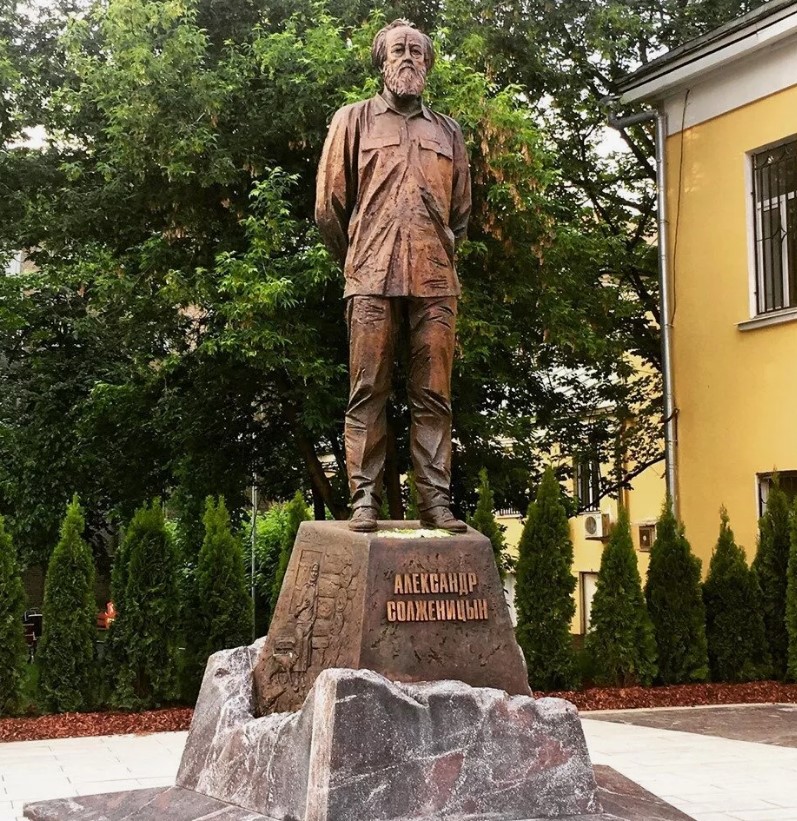Alexander Isaevich
Solzhenitsyn
1918-2008

Alexander Isaevich Solzhenitsyn was a writer, playwright, essayist, poet, public and political figure. Winner of the Nobel Prize in Literature (1970), the State Prize of the Russian Federation (2007) and the State Prize of the RSFSR named after M. Gorky (1990). Academician of the Russian Academy of Sciences (RAS) in the Department of Historical and Philological Sciences (1997). He was born into a wealthy and educated Cossack family. Even while studying in high school, Alexander Solzhenitsyn began to engage in literary work, but despite this, he chose mathematics as his future specialty and enrolled at the University of Rostov-on-Don. However, fascinated by literature, in 1939 he also decided to enroll in correspondence at the Faculty of Philosophy of the Moscow Institute of Philosophy, Literature and History. In the spring of 1941, Solzhenitsyn was drafted into the army. At the front, he demonstrated his bravery by receiving the rank of captain and awards. In February 1945, Solzhenitsyn’s fate changed dramatically: He was arrested. After serving a year in construction crews and three years in the camp, Solzhenitsyn composed literary works inspired by his own experience. His famous works “One Day of Ivan Denisovich”, “Cancer Corps” and “GULAG Archipelago” grew out of these difficult years. In 1952, Solzhenitsyn was diagnosed with a tumor, and after treatment, he was sent to settle in Kazakhstan, and then rehabilitated in 1956. In Ryazan, he worked as a teacher, without ceasing to write. In 1961, A.I. Solzhenitsyn gave his story “One Day of Ivan Denisovich” to A.T. To Tvardovsky, the editor-in-chief of the Novy Mir magazine, which was the beginning of his literary career. His works were published abroad, and in 1970 A.I. Solzhenitsyn was awarded the Nobel Prize.
Address: Moscow, Alexandra Solzhenitsyn str., 11, building 1

